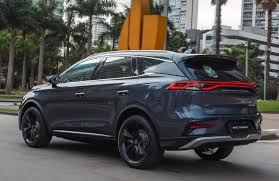Imagine a world where your electric vehicle (EV) charges in minutes rather than hours, drives further on a single charge, and operates more safely. This is not a futuristic dream but a rapidly approaching reality, thanks to solid-state batteries. As automakers race to innovate, solid-state technology is poised to transform the EV landscape by 2025. In this article, we’ll explore how solid-state batteries work, their potential impact on electric vehicles, and what this means for you as a consumer.
What Are Solid-State Batteries?
Solid-state batteries represent a major leap in battery technology. Unlike traditional lithium-ion batteries that use liquid electrolytes, solid-state batteries employ a solid electrolyte. This innovation brings several advantages:
- Increased Energy Density: Solid-state batteries can store more energy in the same amount of space, potentially doubling the range of electric vehicles.
- Faster Charging Times: The solid electrolyte allows for quicker ion transfer, significantly reducing charging times.
- Enhanced Safety: Without flammable liquid electrolytes, solid-state batteries are less prone to overheating and fires.
Why Solid-State Batteries Matter
The automotive industry is on the cusp of a battery revolution. According to Bloomberg Green, advancements in solid-state technology could lower battery costs by 30% by 2025, making EVs more affordable. Automakers like Toyota and Volkswagen are heavily investing in solid-state research, with Toyota planning to debut a solid-state battery-powered car by mid-2025. This shift is crucial for achieving global sustainability goals and reducing carbon footprints.
The Impact on Electric Vehicles
Extended Range and Efficiency
One of the biggest hurdles for electric vehicles is range anxiety. Solid-state batteries promise to alleviate this concern with their higher energy density. For instance, a typical EV with a range of 300 miles could potentially achieve 500-600 miles on a single charge with solid-state technology.
- Tesla’s Vision: Tesla, known for pushing the boundaries, is exploring solid-state options to enhance its already impressive range offerings.
- Volkswagen’s Ambitions: Volkswagen aims to integrate solid-state batteries into its fleet, targeting a 30% increase in range for their future models.
Charging Infrastructure Evolution
As charging times decrease, the demand for extensive charging networks may also diminish. The ability to charge an EV in under 15 minutes could redefine where and how we charge our vehicles:
- Home Charging Solutions: With faster charging, home setups will become more viable for those with access to a garage or driveway.
- Public Charging Stations: Companies like Rivian are investing in rapid chargers, anticipating the rise of solid-state technology.
- Universal Compatibility: Solid-state batteries may lead to standardized charging connectors, simplifying the process for consumers.
Safety Advancements
Safety is paramount in automotive design. The non-flammable nature of solid-state batteries reduces the risk of thermal runaway, a significant safety concern with lithium-ion batteries. This improvement could lead to:
- Reduced Vehicle Recalls: With fewer fire-related incidents, manufacturers can avoid costly recalls.
- Enhanced Consumer Confidence: Safer battery technology will likely increase adoption rates among cautious buyers.
How to Prepare for the Shift
What Consumers Should Consider
As solid-state batteries inch closer to commercialization, consumers should stay informed and consider the following:
- Research Future Models: Keep an eye on announcements from brands like Nissan and Hyundai, which are expected to release solid-state powered vehicles.
- Evaluate Charging Needs: Assess your home’s electrical capacity for potential upgrades to support fast-charging infrastructure.
- Compare Costs: While initial models may come at a premium, costs are expected to decrease as the technology scales.
Where to Buy and What to Compare
For those eager to embrace this new era of EVs:
- Dealerships and Online Platforms: As brands launch solid-state models, prioritize authorized dealers and trusted online platforms for purchases.
- Compare Features: Look beyond range and charging times; consider vehicle safety features and warranty offerings related to the battery.
Conclusion: The Road Ahead
Solid-state batteries are set to redefine the electric vehicle industry by 2025, offering longer ranges, faster charging, and enhanced safety. This technological shift not only aligns with global sustainability goals but also promises to make electric vehicles more accessible and appealing to a broader audience. As consumers, staying informed and prepared for this evolution can position you at the forefront of the green mobility movement.
Are you ready to embrace the future of electric vehicles? As solid-state technology becomes mainstream, the driving experience will be transformed, making EVs a cornerstone of sustainable living. Keep an eye on the latest developments and prepare to make the switch to a cleaner, more efficient mode of transportation. The road to 2025 is paved with innovation, and the journey promises to be electrifying.

